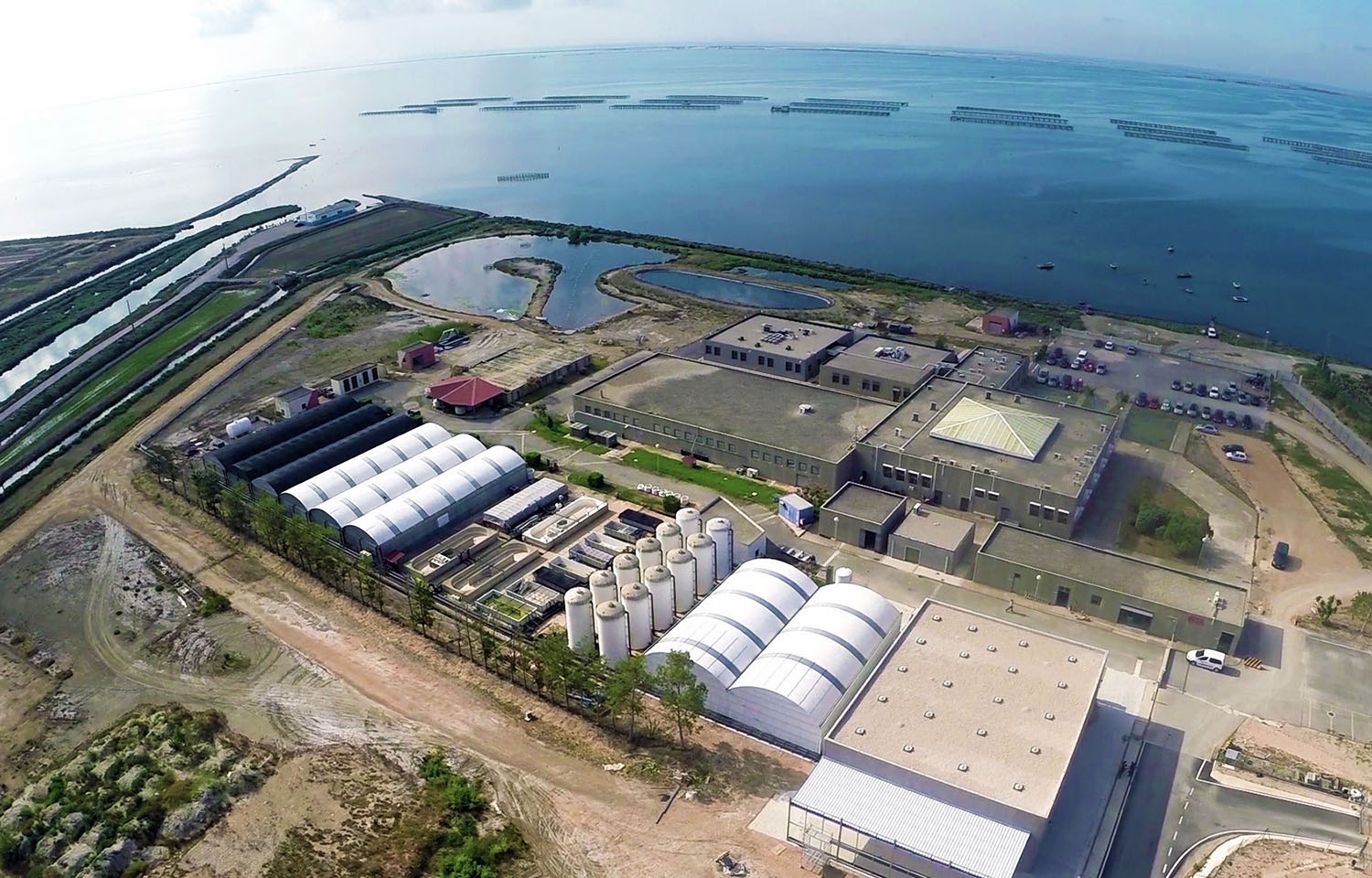The Mediterranean Restorative Aquaculture Centre is scheduled to open by the end of 2024 in La Rapita, Catalonia, Spain.
Those working at the center will research the farming of macroalgae, sea urchins, bivalves, and holothurians, as well as the optimization of integrated multi-trophic aquaculture systems as a means of encouraging the restoration of the Mediterranean and Black seas, thereby promoting sustainable economic development.
“The center will provide an opportunity to create a bridge between scientists and companies on both shores of the Mediterranean Sea,” Institute of Agrifood Research and Technology (IRTA) General Manager Josep Usall said in a press release.
Announced at the 2024 Seafood Expo Global in Barcelona, Spain, the center is supported by the General Fisheries Commission for the Mediterranean (GFCM) of the Food and Agriculture Organization of the United Nations (FAO), the Generalitat de Catalunya, Departament d’Acció Climàtica, Alimentació i Agenda Rural (DACC), and IRTA. The GFCM is a regional fisheries management organization operating under the framework of FAO covering both the Mediterranean and Black seas.
Its members include Albania, Algeria, Bulgaria, Croatia, Cyprus, Egypt, the E.U., France, Greece, Israel, Italy, Lebanon, Libya, Malta, Monaco, Montenegro, Morocco, Romania, Slovenia, Spain, Syria, Tunisia, and Turkey, as well as six cooperating non-contracting parties: Bosnia and Herzegovina, Georgia, Jordan, Moldova, Saudi Arabia, and Ukraine.
“The opening of the Mediterranean Restorative Aquaculture Centre as an innovation and capacity-building center is a very important milestone for our region,” GFCM Executivey Secretary Miguel Bernal said. “Within the framework of the GFCM 2030 Strategy, it aims at increasing and sharing knowledge on aquaculture resilience in the face of climate change.”
The GFCM 2030 Strategy, launched in 2020, calls for the improvement of fisheries and aquaculture to become more sustainable while continuing to contribute to local and regional economies.
The center will aim to foster the exchange of technical guidance, expertise, and experience among stakeholders and to develop knowledge and capacity for restorative aquaculture, encouraging and promoting innovation in the process. It will accept and employ traditional knowledge along with advanced technologies, providing state-of-the-art facilities and expertise for research and development of sustainable aquaculture practices.
“We are honored to host the Mediterranean Restorative Aquaculture Centre, given the commitment of the Generalitat de Catalunya, to promote the sustainable development of aquaculture and the strengthening of ecosystem services in the Mediterranean,” DACC Direcció General de Política Marítima i Pesca Sostenible Director-General Sergi Tudela said.
The center’s goals will also include diversifying the region’s aquaculture sector and developing methods for adapting the Mediterranean’s aquaculture sector to climate change. It will also seek to align its initiatives with FAO goals on “blue transformation,” which call for intensifying and expanding aquaculture production while also generating positive impacts for both the environment and society. This would also be carried out in alignment with the United Nations' Sustainable Development Goals (SDGs), particularly SDG 14: “Life below water,” SDG 8: “Decent work and economic growth,” and SDG 2: “Zero hunger.”








